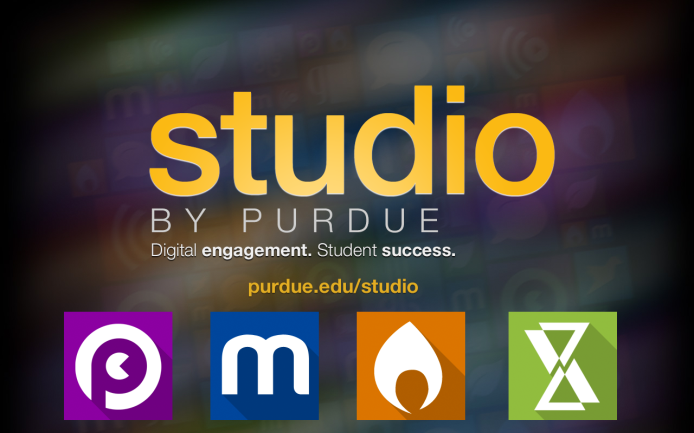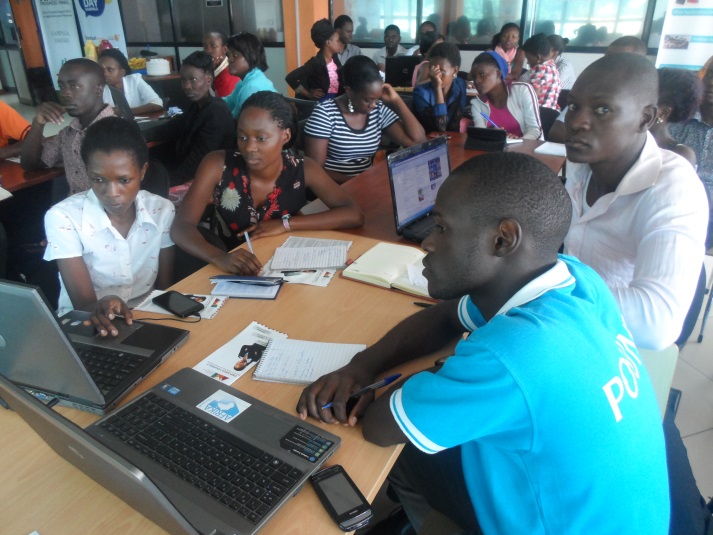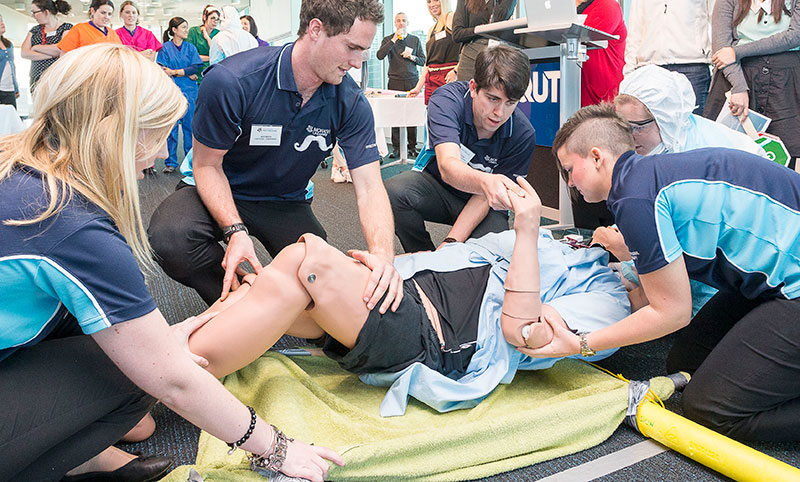
How do you imagine higher education today? Probably a large lecture hall, boring seminars and piles of books collecting dust. Yet, educators and institutions around the world are making strides every day in creating better learning environments, higher knowledge retention, peaked interests, and ultimately a higher education that has been 'reimagined'.
2014 marks the inaugural year of the Wharton-QS Stars Reimagine Education awards. This initiative, created by a collaboration between the University of Pennsylvania Wharton School SEI Center for Advanced Studies in Management, and QS Quacquarelli Symonds, known for the World University Rankings. The mission of the initiative is not only to award those programs around the world that have gone above and beyond the normal higher education experience, but Reimagine Education also serves to bring together global academics to share best practices, and brainstorm new efforts. In the first year of this initiative, 427 project applications were received from 43 nations, exceeding initial expectations. This provides a depth of insight into the innovative trends present in higher education around the world unlike any other initiative at present.
These projects were judged in multiple rounds by a distinguished international panel of 25 modern and traditional learning experts. All entries were judged by specifically considering the approach of the initiative, its impact upon student success, engagement, and the scalability or depth through which the innovative practice could be used in other circumstances. The result was an isolation of particularly innovative higher education pedagogies in the categories of Best Teaching Delivery, Nurturing Employability, Presence Learning, Hybrid Learning, E-Learning and Enterprise.
The pinnacle of this year's Reimagine Education initiative was a three-day conference in Philadelphia, complete with 47 entry showcases, a gala awards dinner and high profile guest speakers, including but not limited to, the co-founder & president of Coursera, as well as the CEO of EdTech Europe. Philadelphia Social Innovation Journal has collaborated with the Reimagine Education initiative to bring to you an exclusive of the top three entries from the six category awards, as well as the overall winners of the $50,000 prize fund.
Hybrid Learning
Hybrid Learning was a category for those innovations which featured both technological aspects as well as more traditional pedagogies. Due to the increased prevalence of technology in many University classrooms today, this category had the second highest number of applicants, making the recognition quite an achievement. There were four finalists in this category, due to a tie for second place. Three nations are represented; United States, The Netherlands, and Hong Kong.
Case Based Collaborative Learning â Harvard University (3rd Place)
Case Based Collaborative Learning (CBCL) expands upon the characteristics and goals of team based learning, accomplishing student readiness, individual testing and group consensus. This is done through case presentations generating student responses, questions prior to the students class attendance, and group evaluations requiring one answer to be given. This stems from the idea of guided exploration with hypothesis generation.
Developing & Stimulating Young Engineers: Simulations, Collaborations & Creations - University of Utah (1st Place)
The early learning curriculum has been transformed through the implementation of a new freshman design liboratory, coupling online content & simulations, engaging lectures, as well as proven hands-on, collaborative techniques. The course features a blend of different project and assignment forms, including a collaborative project between freshmen and seniors, which is designed to assist student into eventual employment and progress.
Principles of Policy Analysis blended course â Delft University of Technology, The Netherlands (2nd Place)
The design of this course leverages cutting edge technology, innovative educational methodologies, and extensive student input to transform studentsâ learning experiences. Student become intricately linked to the design of their own learning journeys, with a level of teacher interaction that directly responds to student difficulties in the moment. Students take responsibility for their own education, and the level of student success as well as satisfaction has risen as a result.
Blended MOOS and On- Campus Learning - Hong Kong University of Science and Technology (2nd Place)
The program was established in 2005 with the goal of establishing a virtual campus that is able to provide students around the world with the broad range of course possibilities offered by universities in Hong Kong. It is designed to improve the transition to higher education, offer a range of classes not available at one's home institutions, give graduates a variety of lifelong learning opportunities, and provide feedback to teachers.
E-Learning
The category of E-Learning is intended to highlight and award the most innovative entries which utilise online tools to enable student success. Not surprisingly, this category received the most amount of applications, along with a wide range of variety in the application of these tools. E-Learning is also the only category in which judges decided upon a tie for first place.
Enhanced E-learning through utilization of mobile learning - Yeungnam University, South Korea (3rd Place)
Yeungnam University was the first university in Korea that started utilizing mobile learning as an alternative to take credit courses, launched in 2011. The mobile learning enabled students to take and review their courses anywhere and at any time with smart phones. In last three years, 958 mobile-based courses have been offered and 160,355 students from 95 different universities have been taking these for credit transfer.
PaGamO, the world's first ever multi-student social gaming - National Taiwan University, Taiwan (1st Place)
As the first-ever MOOC made in Chinese, this is a multi-student social gaming platform called 'PaGamO'. This platform allows thousands of students to compete on the same map by occupying territory through problem solving. Not only can one win land, but one can have problem based battles with others, creating monsters, and taking other students land. This program is easily adapted to insert problems from any subject matter or language to facilitate learning.
PhET Interactive Simulations - University of Colorado Boulder (1st Place)
Designed to address the need to improve K-20 science education for US and world, as numerous reports call to increase the number of students pursuing technical fields and prepare graduates to enter the technical workforce, and lead technical innovation. PhET has developed over 130 research-based interactive simulations, emphasizing connections to the real world, make the invisible visible, and include the visual models scientist use. They are easily translated and able to be run both on or offline.
Studio by Purdue - Purdue University (2nd Place)
Dedicated to increasing student success by supporting the creation of technologies that transform the student experience, Studio by Purdue empowers faculty by enabling new pedagogical strategies, communications, and student engagement. The program prides itself in continually challenging the classroom paradigm while encouraging exploration into areas that classrooms have traditionally cut out of instruction. With broad applicability across subjects and adaptability for each course, this has change the teaching approach.

Enterprise
While Reimagine Education in 2014 was largely entries by Universities, there was a category specifically geared towards enterprise. This was designed for both enterprises themselves, or those educational programs focusing on a student's enterprise. There were four finalists for this category, from Nigeria, Denmark, and the United States.
African Management Initiative - AMI, Nigeria (2nd Place)
The African Management Initiative, AMI, is a pan-African social enterprise that empowers African managers & entrepreneurs through practical as well as accessible learning and coaching tools. They have developed the first online social learning platform in Africa, designed for an African context - low on bandwidth and with mobile in mind, partnering with Africa's top business schools and practitioners to develop world class content.

Career Exploration: The Gamification of Undergraduate Sport Management North Carolina State University (3rd Place)
The Gamification Module created within Moodle, an open source learning management system, was designed to actively engage as well as motivate students while improving their academic achievement and satisfaction with a distance education undergraduate course in sport management. This has been designed to assist students in the process of making career choices and developing the skills required for career advancement.
ForClass: Driving Student Engagement through Accountability - ForClass Ltd. (1st Place)
Students learn better when they are engaged - both in the course content and class discussion. Engagement remains a constant struggle for professors across disciplines. ForClass has developed a solution: a single tool that drives student engagement through accountability, while streamlining content distribution, student assessment and classroom management for faculty - the first and only tool to combine these three elements.
Labster: Virtual Laboratory, Denmark (3rd Place)
In teaching science, one meets challenges like, the high number of students combined with budget limitations, high failure rates in passive learning such as lectures, expensive laboratory costs, and low learning efficiencies with cookbook methods. At Labster these problems are circumvented by introducing students to a virtual laboratory, in which they are invited to investigate and resolve life science case stories. This 3D virtual laboratory is built based on real life topics that students can easily relate to, and can be used by teachers as a supplement or an alternative teaching method.
Nurturing Employability
Many students make higher education decisions based upon their expectations for that education to open more doors of opportunity in their future careers. Due to this decision making factor of the consumers of higher education, the creators of Reimagine Education felt that a category to highlight the best practices in nurturing employability was not just insightful, but essential. In the 2014 Reimagine Education there were 3 finalists for the category of Nurturing Employability, representing the United States, Italy, and Australia.
Accelerating Medical Innovation and Careers: MILI Global Valuation Laboratory, University of Minnesota (2nd Place)
While new medical technologies can save lives, the biggest hurdles are the need for a market. The purpose of the Medical Undustry Leadership Institute Valuation Lab at the Carlson School speeds time to market by having students, inventors, and entrepreneurs conduct market valuation, product viability testing, intellectual property assessment, and strategy recommendations for new medical technologies. This helps not only students learn the process through a hands on process, but helps the medical industry as well.
Enhancing Engineering Education for 21st Century Employability - Politecnico di Milano, Italia (1st Place)
In 2011, a new educational strategy was created in order to maintain a high level of employability as well as reputation in a globalized work environment. Now fully implemented, this strategy is based on traditional technical skills, cross-cultural skills, cross-disciplinary innovation, and a sense of developed social responsibility. This is then implemented through internationalisation of curriculum, strategic partnerships with companies, and a blended learning experience.
The HealthFusion Team Challenge; Building Stronger Healthcare, Queensland University of Technology, Australia (3rd Place)
This challenge is geared as an internationally recognised, extracurricular competition based in Australia for senior students in the health sciences. This gives students about to merge into the field an opportunity to develop and demonstrate expertise in teamwork and realistic scenarios that must be solved. Students from 20 different health disciplines work in teams over a sustained period.

Presence Learning
A large challenge in higher education is ensuring that yours students are fully engaged in what you are teaching, in the moment. That they are mentally present and occupied with the learning process. This category seeks to bring to light best practices in Presence Learning. The countries represented among the finalists were China, Canada, and the United States.
Extreme Learning Process -Tsinghua University, China (2nd Place)
Extreme Learning Process (XLP) is a trans-disciplinary learning activity design methodology that organizes learners from different disciplines to design and execute learning activities for other learners. It leverage modern ITC infrastructures to empower learners by giving them access to open source technologies, Cryto-currencies, and Distributed Version Control Systems to keep track of participantsâ contributions, conflicts, and learning outcomes throughout learning activities on a global basis.
Learning Through Interdisciplinary Science Research McMaster University/Faculty of Science/Honours Integrated Science (1st Place)
The 4-year Honours Integrated Science (iSci) program instructional and administrative teams have collaborated, with student involvement, to design and implement an innovative program of research-focused interdisciplinary education that produces scientists skilled in research and communication and ready to enter a range of professional fields. The result is an exciting and innovative program focused on student learning instead of teaching, a program focused on outcomes instead of administrative limitations.
The Global Understanding Program - East Carolina University (3rd Place)
The Global Understanding Program uses innovative technology based learning strategies to provide access to first hand, real-time international experiences to the 98% of East Carolina University (ECU) students who do not take advantage of study abroad options. Our activities provide students both here and at our 58 partner institutions in 30 countries on five continents the opportunity to develop essential skills necessary to succeed in a global, multicultural society. Through working on collaborative projects, students learn essential leadership skills such as the ability to work and develop a joint product in a cross-cultural environment, adaptability, self-awareness and empathy.
Teaching Delivery
Any teacher will likely say that the students absorption of knowledge is dependent upon the delivery style of the teacher in presenting the knowledge to students. As such innovations within the delivery of knowledge itself is highlighted in the category of Teaching Delivery, with finalists from the United States and Mexico.
Beyond Traditional Borders - Rice University (2nd Place)
This project is inspired by the Haitian saying, "You do not learn to swim in the library, and you learn to swim in the river." The curriculum is designed to develop leaders by giving students the opportunities to solve real problems and put their own ideas into action. Students become engineering leaders who can identify the most important technology challenges; lead multi-disciplinary teams, and implement entrepreneurial approaches for sustainability.
Burkenroad Reports - Tulane University (1st Place)
This project demonstrates that small teams of college students have the potential to generate equity research of the same quality of Wall Street. Here, students are turned into real world research analysts concerning 'Stocks under Rocks' or those small capitalization companies that are often overlooked by big research firms. Students create comprehensive reports on small publicly traded companies in the US south, developing finance models, competitive analysis, forecasts, and investment recommendations.

Towards a Visual and Tangible Mathematics - Tecnologico de Monterrey, Mexico (3rd Place)
The only way that Mathematics can be conceived is through different representations and applications. Within technology there is the opportunity to create a way to interact with myriad representations of mathematics both in and out of the classroom. This is done using Augmented Reality as an emergent technology, which is used particularly for the learning of calculus at a variety of levels.
Overall Winner(s)
The Overall Winner was not just one entry, but due to the tied judges scores Wharton-QS Stars is awarding two overall winners to split the 50,000 USD prize, and the prestige. These projects are PaGamO from National Taiwan University, and PhET Simulations from University of Colorado Boulder. The following videos submitted by submissions prior to the announcement, help exemplify both projects' views on their future roles in higher education.
PhET Simulations
PaGamO
In order to stay up to date with Reimagine Education follow it on twitter at @ReimagineHEdu, or visit our website Reimagine-Education.edu, where the 2015 competition shall be launched in Spring of 2015.